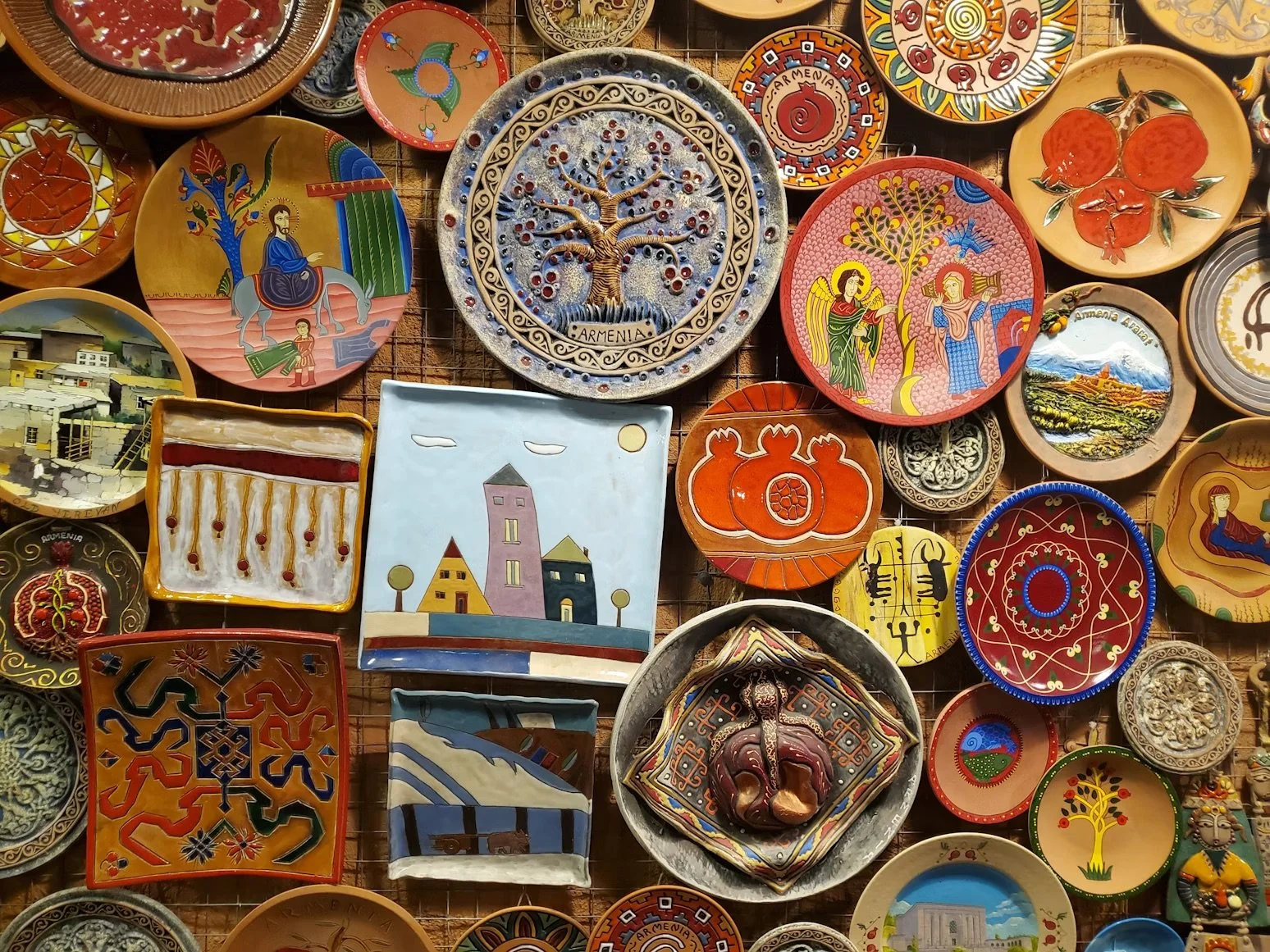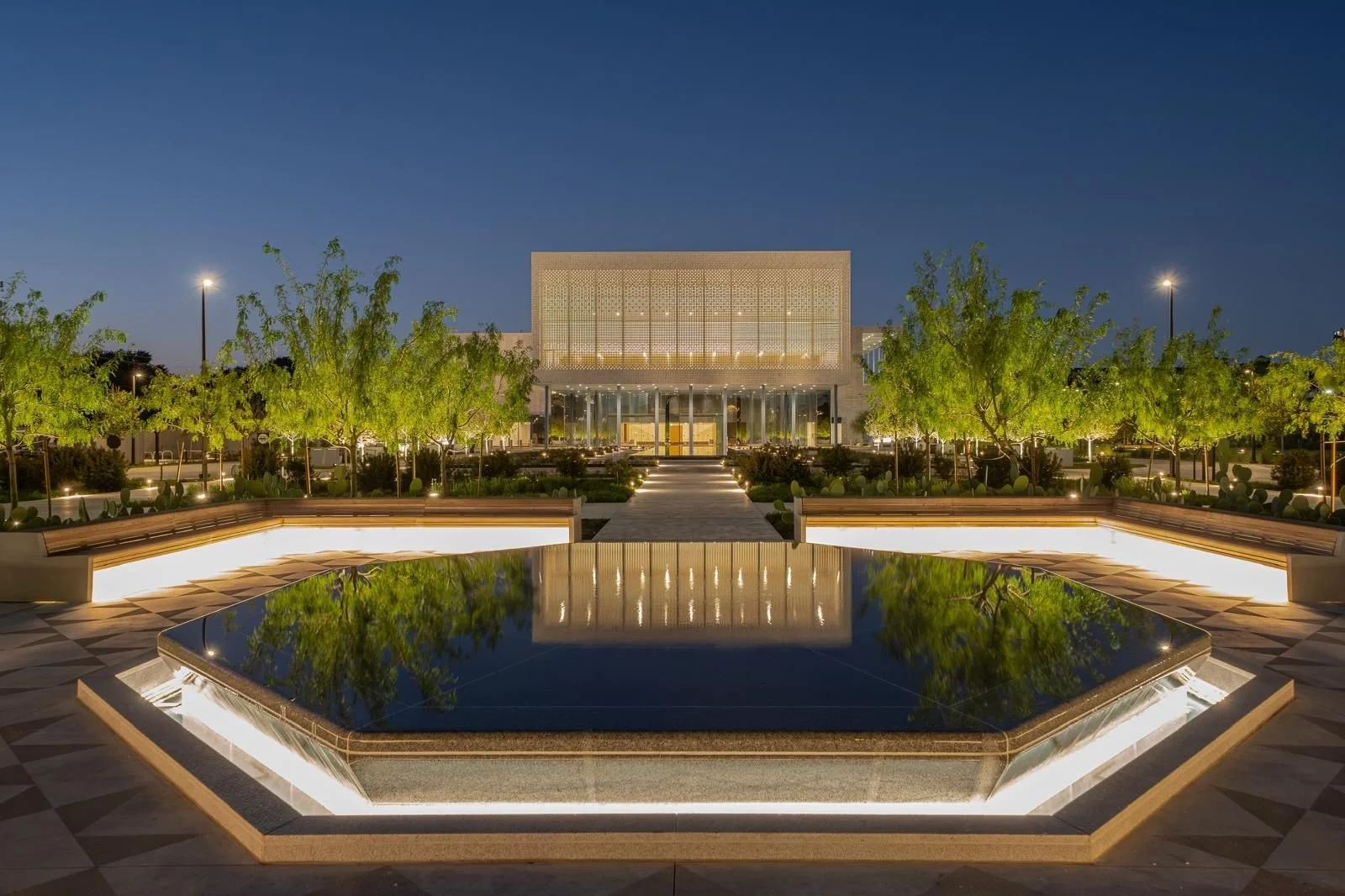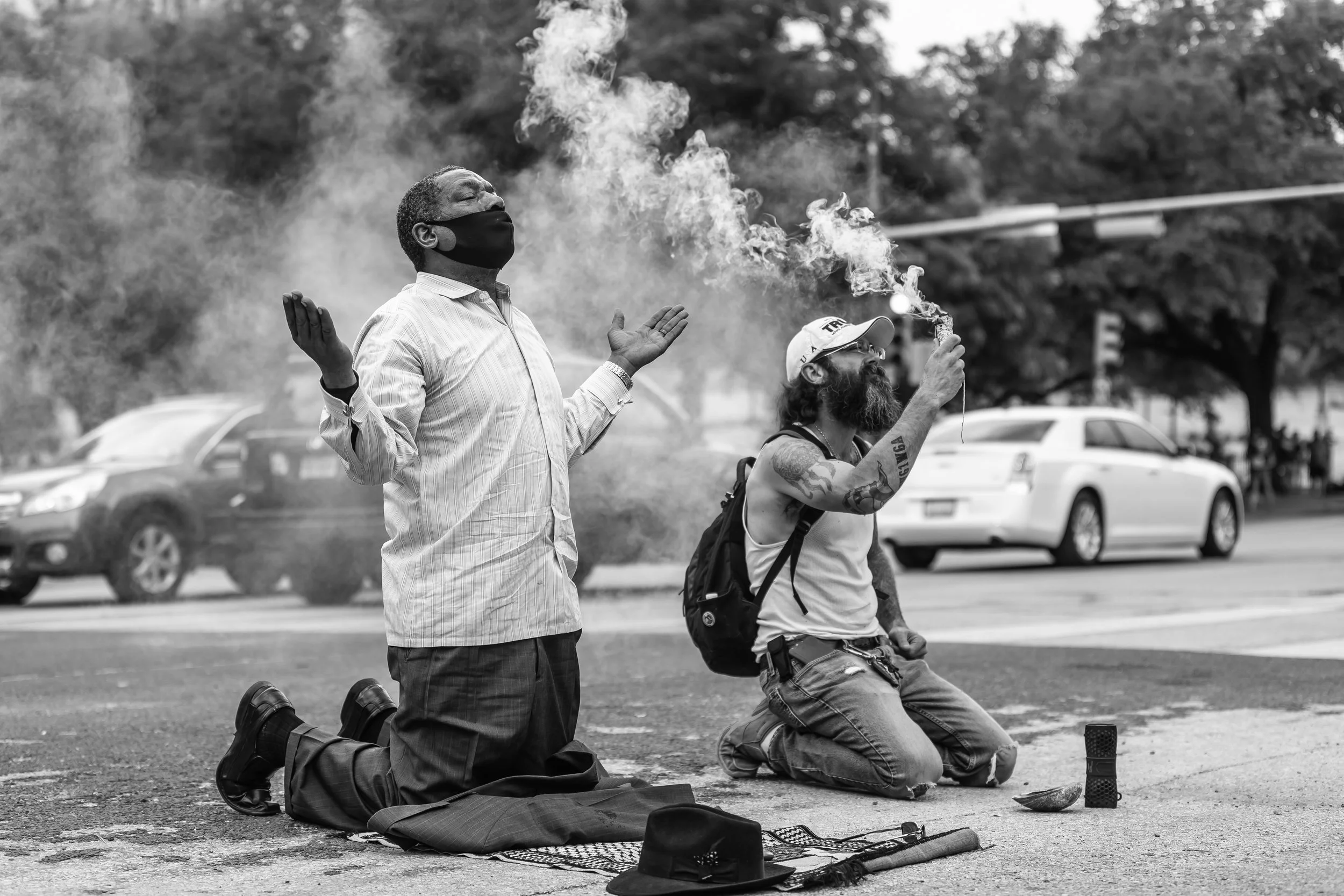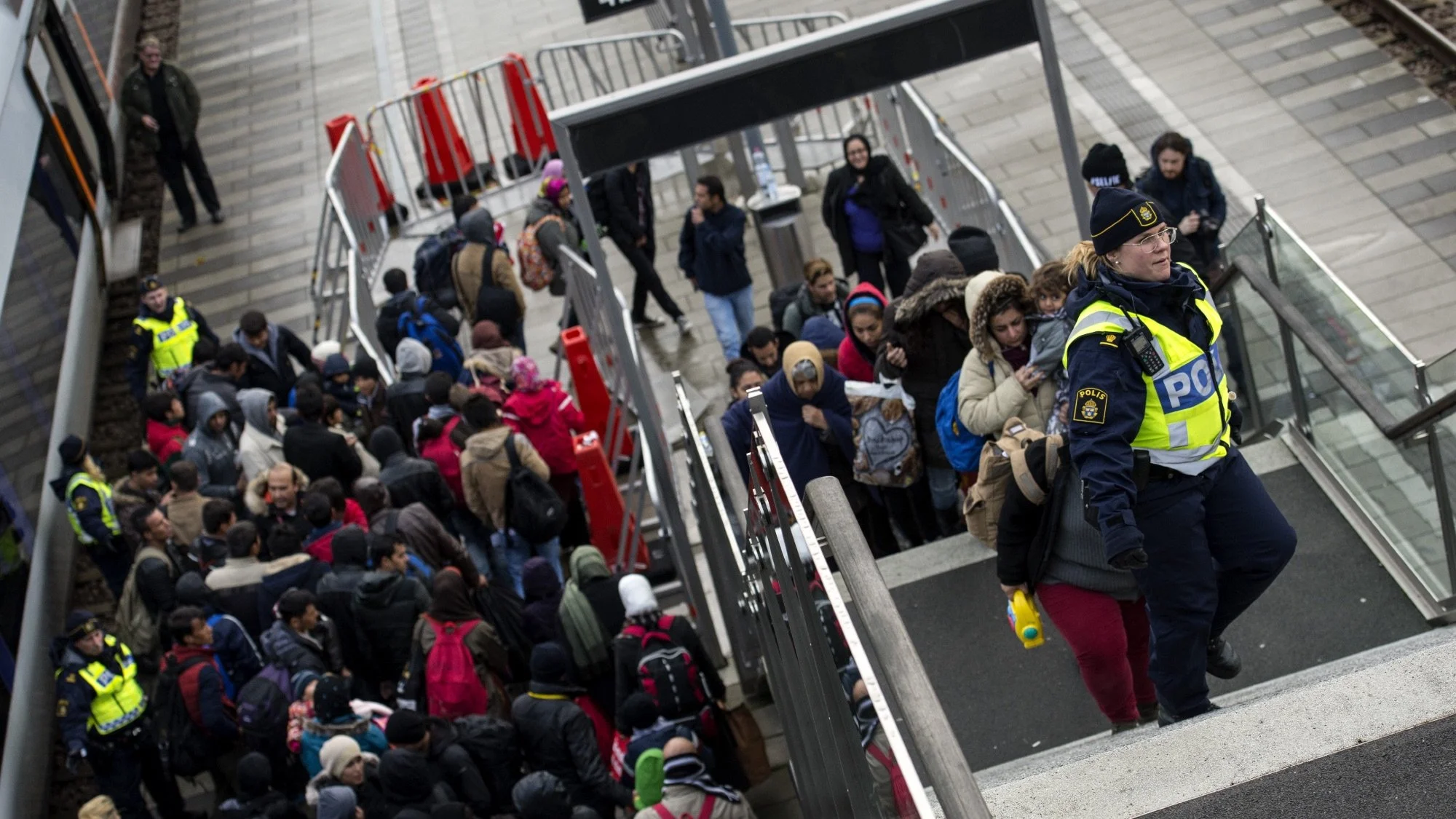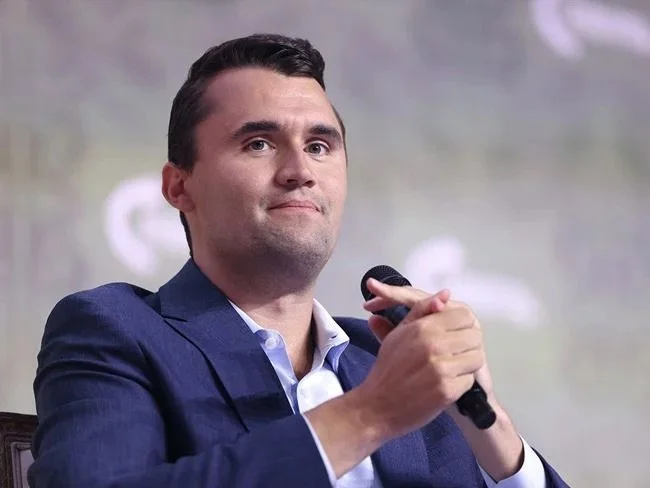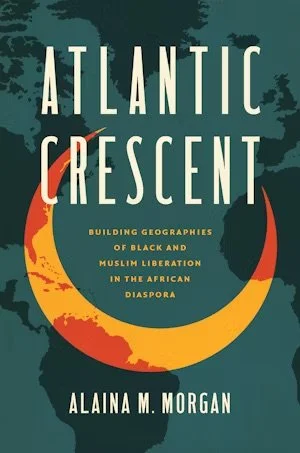I stumbled into the world of Japanese debates about Islam and Muslims almost by accident.
You see, like many other millennials, my wife and I are planning a trip to Japan.
The itinerary includes a lot of the standards: karaoke in Tokyo, onsen (natural hot springs) on the west coast and a visit to the Cup Noodles Museum in Yokohama (naturally). But, and because I never stop being a religion nerd, the trip will also include side quests to visit to the Kobe mosque and Tokyo’s HALAL-Ya store in Asakusa—the biggest halal food, souvenir, and specialty store in Japan.
Planning the trip, I’ve been watching YouTubers like Chris Broad, who share about their lives, likes and dislikes in Japan. Last month, on his channel “Abroad in Japan,” Broad shared one of his latest dislikes—sensationalist YouTube content highlighting what’s wrong with Japan. The video in question was posted by “Oriental Pearl,” featuring voyeuristic shots of Tokyo’s unhoused population, urban graffiti and sex workers.
While Broad’s criticisms of the post were on point, it was what waited in the comment sections of the original video that grabbed my attention: claims about “no-go zones,” conspiratorial warnings about demographic replacement and a steady stream of unease about the presence of Muslims in Japan.
One user wrote, “the more migrants Japan brings in the [worse] things will get.” Another posted, “100% The ‘refugee’ effect.” Still others made particular accusations, commenting on how there seem to be more Indians and Muslims than ethnic Japanese in cities like Osaka, lamenting the presence of Islam in the country at all, and another saying: “the graffiti wasn't in Japanese... And a lot of it said ‘Free Gaza’. Do the math.”
Though Oriental Pearl made no explicit reference to Islam or Muslims, her post brought out comments that highlight how anti-refugee sentiment, Islamophobia and anti-Muslim attacks similar to what we see in Europe or North America are prevalent — and increasingly on the rise — in Japan.
Wall of ceramic plates in Yerevan, Armenia (Photo: Hasmik Ghazaryan Olson)
A church under investigation — or political siege?
Billed as bipartisan gatherings for spiritual reflection and fellowship, national prayer breakfasts are seldom limited to prayer alone. They often serve as platforms where religion becomes a stage for politics dressed in its Sunday best.
And when Armenia hosts its first national prayer breakfast Friday and Saturday (November 14-15), it comes amid one of the most potent confrontations between church and state in the country’s modern history.
In recent months, tensions between the government and the Armenian Apostolic Church (AAC), its independent national church, have escalated sharply. Authorities arrested top clergy accused of taking part in a plot to overthrow Prime Minister Nikol Pashinyan’s government earlier this year.
Pashinyan, who will deliver the keynote address at the prayer breakfast, has cast the event as part of his broader effort to “renew Armenia’s spiritual foundations” after years of political turbulence and conflict. The organizers invited American Christian leaders like Franklin Graham and former pastor Jim Garlow to the gathering, while rumors surfaced that they also invited Donald Trump Jr. Charlie Kirk had agreed to speak at the event before his assassination, according to Dede Laugensen, president and CEO of Save the Persecuted Christians.
But critics see the breakfast—said to be organized by a group called the Individual Believers Club—as an attempt to give religious legitimacy to a government that is persecuting the church as part of a broader effort to weaken challenges to its authority. Meanwhile, others say AAC is doing the bidding of Moscow due to its close ties with the Russian Orthodox Church, support for the Kremlin’s “traditional values,” and opposition to Armenia’s pursuit of a more democratic, European-oriented path.
In my latest for Christianity Today, I speak to pastors, leaders and politicians about what it means for the South Caucasus country going forward.
Between success and suspicion: In US and Germany, Muslims meet the moment
Zohran Mamdani’s election as New York City mayor is being celebrated by many as a new political height for Muslims, even as the 34-year-old’s astounding rise is shadowed by a persistent, if unsurprising, increase in Islamophobic attacks, against him and other Muslim politicians.
A day later in Germany, meanwhile, the government announced a ban on a group called Muslim Interaktiv for allegedly “threatening constitutional order.” The action followed government raids on the premises of other groups authorities referred to as purveyors of “modern TikTok Islamism.”
The fate of Muslims in two leading Western democracies could not seem to be more different, with one country appearing to welcome more political integration for Muslims and the other restricting what is acceptable. But a deeper look reveals that Muslim “success” stories in the U.S. are often a matter of interpretation, obscuring ongoing and significant challenges. Meanwhile, the negative narrative in Germany misses profound, albeit uneven, progress.
German Chancellor to Syrian Refugees: ‘Go Home’
Last week, German chancellor Friedrich Merz announced that it is time for Syrian refugees in his country to return home. An estimated 1.3 million refugees have arrived in Germany since Syria’s civil war began 14 years ago. Now that Bashar al-Assad’s regime has fallen and a new government is in place, Merz says Syrians must rebuild their country just as Germans did after World War II.
The Bulletin sat down with Russell Moore, Mike Cosper, and CT contributing writer Ken Chitwood, who is based in Germany, to learn more about the country’s demographics and deportation plans. Listen to the whole conversation in episode 223.
You can read the edited excerpts below.
Love is Halal: LGBTQ+ Mosque in Berlin Reopens its Doors
Wearing a black dress, dancing across the interior of an urban mosque and waving an LGBTQ+ flag, Berfin Celebi—formerly known as "Kurdische Kween”—wants to be clear: her mosque is open for business. “Because many believe it is closed,” the caption on her TikTok video reads, Celebi believed it was time to spread the news.
The mosque in question? The Ibn Rushd Goethe Mosque in Berlin, Germany, which opened in 2017 to promote a “a progressive and inclusive Islam,” allowing women and men to pray together and accepting LGBTQ+ members.
But in October 2023, the mosque was closed after security authorities arrested several men from Tajikistan associated with the Islamic State Khorasan Province (ISIS-K) who were plotting attacks in Germany—including concrete threats against the Ibn Rushd Goethe Mosque, which they called a “place of devil worship,” and its initiator and co-founder, former German lawyer Seyran Ateş. It remained shut through the end of 2024.
Celebi, a German-Kurdish transgender woman who became known for her sometimes-provocative social media content as a drag queen before her gender reassignment transition, is proud of her now re-opened mosque and is not afraid to show it.
And to critics who call it a “fake mosque,” Celebi and those who have resurrected the project want everyone to know they are ready to welcome queer people once again.
‘People Are Already Dying’: The Spiritual Crisis Behind U.S. and U.K. Foreign Aid Cuts
After abrupt cuts to foreign aid in the United States and United Kingdom at the start of 2025, faith leaders feared such measures were just the beginning of a larger realignment of the longstanding collaboration between Western governments and religious groups to deliver humanitarian aid, partner in peacebuilding and support development across the globe.
The more immediate concern, aid workers in sub-Saharan Africa told the Fetzer Institute, was because cuts were so sudden, local governments and on-the-ground organizations had little-to-no time to prepare.
The impact, they shared, was instantaneous and brutal.
Clinical trials investigating the cross-border spread of infectious diseases in Kenya came to an overnight halt. A peace agreement that brought an end to a 40-year conflict in southern Senegal that had U.S. government funding baked in is no longer certain to hold. Communal kitchens in war-torn Sudan were no longer able to offer food in the midst of war-induced famine.
The full force of the funding cuts was directly devastating, said Barbara Njenga, who works in health research and development in Kenya.
Because of sub-Saharan Africa’s existing vulnerabilities, the effect was that much more severe. Of the 20 poorest countries on earth, 19 are in sub-Saharan Africa. Among them, seven rely on U.S. aid dollars to cover over a fifth of their assistance — South Sudan, Somalia, Democratic Republic of Congo, Liberia, Sudan, Uganda and Ethiopia.
Njenga cited numerous examples of that impact, from the lack of funding for critical HIV research, cuts to maternal and child health programs as well as school-based nutrition schemes and the reduction of surveillance programs to monitor potential outbreaks of diseases like Ebola. She also cited the economic vulnerabilities, with numerous workers losing their jobs and the knock-on effect that can have on families and communities.
“In one neighborhood near Kisumu [a city in western Kenya], there were numerous health programs supported by the U.S. government,” said Njenga. “On a recent visit, it was almost like a ghost town because so many NGO offices were shut down.
People are already dying, said Njenga, and even if funding is restored, much of the pain caused by cuts might be irreversible or irredeemable.
A woman living with HIV or a mother with a terminally ill child or a family with no income can pray to God or beseech religious organizations for aid – but without funding, they still die, she said.
“It is a wakeup call for African nations to think outside of the box to meet our needs.”
Not only are religious organizations stepping into the gap created by aid cuts to provide emergency services and support, they are also providing spiritual succor and searching for deeper, more divine, intimations in the midst of the devastation.
The Christian Right is Putting Europe's Online Speech Laws to the Test
On Thursday, Oct. 30, Finnish politician Päivi Räsänen had her day in court. Again.
Räsänen, a former interior minister, and Lutheran Bishop Juhana Pohjola, are being adjudicated for alleged hate speech after Räsänen tweeted a Bible verse questioning her church’s participation in a Pride event and co-authored a booklet with Pohjola outlining her beliefs on marriage and sexuality. Prosecutors claimed both constituted hate speech. Though Räsänen was twice acquitted in lower courts in Helsinki, the case will now be decided by the Finnish Supreme Court.
Beyond Finland, the case is just one moving part in an evolving, broadening battle over free speech that is escalating across the Atlantic.
Räsänen has become a rallying point for conservatives and religious groups who argue that European courts and laws like the Digital Services Act risk unduly restricting free expression and religious belief online under the guise of combating “hate speech.”
A key player in these debates is ADF International, the global arm of the Alliance Defending Freedom, a Christian legal organization based in Arizona, that is coordinating Räsänen’s legal defense. In the U.S., ADF is known for its efforts to help overturn Roe v. Wade as well as more recently bringing a case seeking to overturn laws banning conversion therapy for minors.
In Europe, ADF International has joined conservative politicians and allied religious organizations in arguing the DSA’s broad requirements for removing “harmful” or “illegal” content give tech platforms and regulators excessive power to silence dissenting views. Supporters of the European Union law counter that it includes reasonable safeguards to curb hate speech and disinformation, aiming to make digital spaces safer without undermining legitimate debate or religious expression.
Bad Bunny performs during his ‘No Me Quiero Ir De Aqui’ residency on July 11, 2025, in San Juan, Puerto Rico. Kevin Mazur/Getty Images via The Conversation
Bad Bunny x Puerto Rican Muslims: How both remix what it means to be Boricua
Bad Bunny, born Benito Antonio Martínez Ocasio, is more than a global music phenomenon; he’s a bona fide symbol of Puerto Rico.
The church choir boy turned “King of Latin Trap” has songs, style and swagger that reflect the island’s mix of pride, pain and creative resilience. His music mixes reggaetón beats with the sounds of Puerto Rican history and everyday life, where devotion and defiance often live side by side.
Bad Bunny has been called one of Puerto Rico’s “loudest and proudest voices.” Songs like “El Apagón” – “The Blackout” – celebrate joy and protest together, honoring everyday acts of resistance to colonial rule and injustice in Puerto Rican life. Others, like “NUEVAYoL,” celebrate the sounds and vibrancy of its diaspora – especially in New York City. Some songs, like “RLNDT,” mention spiritual searching – featuring allusions to his own Catholic upbringing, sacred and secular divides, New Age astrology and Spiritism.
As a scholar of religion who recently wrote a book about Puerto Rican Muslims, I find echoes of that same strength and artistry in their stories. Although marginalized among Muslims, Puerto Ricans and other U.S. citizens, they find fresh ways to express their cultural heritage and practice their faith, creating new communities and connections along the way. Similar to Bad Bunny’s music, Puerto Rican Muslims’ lives challenge how we think about race, religion and belonging in the Americas.
How a Group of Muslim Ladies is Enhancing Approaches to Domestic Violence in Barbados
“Everything in my life is Allah’s work,” says Sakina Bakharia as she sits, sipping on an iced mocha, at a café across from Rockley Beach in Barbados.
Bakharia is buzzing, not only from the coffee but because of a successful 16 Days of Activism Against Gender-Based Violence campaign her organization, the Barbados Association of Muslim Ladies (BAML), was part of. Running from Nov. 24 to Dec. 10 each year, the initiative raises awareness about domestic and gender-based violence on the island.
Domestic violence is a widespread and urgent issue in the Eastern Caribbean. Prevalent for years, a March 2024 report noted a further 21 percent rise in domestic violence cases in Barbados from the previous year — likely underestimated, given a 30 percent spike in calls to crisis hotlines in the same year.
That is why, at the 2024 launch of Barbados’ 16 Days of Activism — an event that included BAML and other advocates — Tonya Haynes, a lecturer at the University of the West Indies, did not mince words. “We live in a world where going to work or walking home from school have proven to be deadly activities for women and girls,” she said.
Her warning was not hyperbolic. She noted that Barbados reports rape rates above the global average and that half of all Barbadian women will experience gender-based violence in their lifetime. “Intimate partner violence, sexual violence, child sexual abuse, and other forms of gender-based violence are daily occurrences in Barbados,” she said, emphasizing that programs like the 16 Days campaign demand we pay attention to those realities.
BAML began in 2010 when Firhaana Bulbulia, now UNICEF’s Eastern Caribbean’s Youth Engagement Officer, created a Facebook group for Muslim girls in Barbados to find safe Islamic spaces to connect and care for one another. In its early years, BAML hosted recreational activities, fundraisers, and community service initiatives, such as food drives for Bajan families. Drawn together by their faith, and united in their sisterhood, BAML’s leaders slowly saw a need to address deeper, often unspoken challenges facing Muslim women in Barbados.
Looking out toward the sea as she finishes her cool coffee, Bakharia says she and her team are there to provide women and girls across Barbados with the resources, tools, and models they need to create a better, safer, and more peaceful reality — drawing on the Sacred to fuel and empower their work.
Everything is Bigger in Texas, Including its New Ismaili Center
Houston is a city known for going big. America’s ninth-largest city by land area, it is home to the world’s largest medical center, one of the nation’s biggest ports, and Texas’ second-tallest building.
Houston’s Christianity is also big, hosting some of the most mega of megachurches, including Joel Osteen’s Lakewood Church and the largest Episcopal church in the nation.
But it is also one of the US’s most religiously diverse cities. And another major religious space will soon join in: The Ismaili Center Houston.
Ismailis are a branch of Shiite Muslims who believe that religious authority continues through a line of imams—divinely guided descendants of Muhammad, the prophet of Islam. The center in Houston is owned by one of two main Ismaili branches, the Nizari Ismailis, who constitute around 1 percent of the global Muslim population.
From the Arctic to the Amazon: Religion in the Extremes
From November 10-21, international representatives will gather in Belém, Brazil--in the heart of the Amazon rainforest--for the COP30 climate summit.
Billed as a critical event to assess progress on the Paris Agreement, evaluate national climate plans and discuss the Amazon's sustainability, the event not only highlights the region's biodiversity and challenges but reminds us that the hot spots of climate change are often far from familiar institutions and global centers.
In the Arctic, melting ice reshapes both landscapes and livelihoods, raising questions of survival and meaning. On low-lying islands in the Pacific, rising seas threaten ancestral graves and sacred sites, forcing communities to reimagine their relationship with place, identity and faith. In the Amazon, where Catholic priests bless river communities and Indigenousvoices advocate resilience, religion is emerging as a frontline voice against the bleeding edges of climate change. And when extreme weather events — from heat waves to hurricanes — leave devastation in their wake, faith groups are on the front lines of responding and rebuilding.
Religion is shaped by these changes, even as it shapes the way individuals and communities react. It is woven into the ways people understand loss, cultivate resilience, cope or hold onto hope at the planet’s margins.
For journalists, covering religion in these contexts means widening the lens. The story isn’t only about policy debates or institutional statements; it’s about how belief is lived at the edges: in prayers for safe hunting grounds, rituals for vanishing coastlines and ceremonies that reinterpret tradition in the face of upheaval.
By telling these stories with nuance, journalists can illuminate how climate change is not only an environmental crisis but a spiritual one — reshaping the meaning of place, community and religion itself.
As COP30 approaches, this edition of ReligionLink offers into religion and climate change in the extremes.
Religion & Political Violence
On a hot and humid September afternoon in Glendale, Arizona, mourners streamed into State Farm Stadium for the memorial of conservative activist Charlie Kirk. Banners of the cross hung beside American flags, and gospel anthems mixed with political slogans from the stage. What some saw as a service of remembrance was also something else: a rallying cry where grief and faith were harnessed to a political narrative, casting Kirk as a martyr and his death as proof of values under siege.
Religion has always been woven into American politics, but that mix has turned sharper in recent years. With faith language cropping up at campaign rallies, on protest signs and at crime scenes, the U.S. is facing a new era where religious identification, political loyalty and violence often overlap.
In this edition of ReligionLink, we provide background, tips, stories, sources and other resources for reporters to better cover the confluence of religion and political violence in the months and years ahead.
How war and displacement transformed this Polish church
The city of Opole is 275 miles from Poland’s eastern border. But Ukraine never feels that far away.
And at Ostoja Church, a Pentecostal congregation that has served the city of 130,000 since 1952, that presence is palpable, particularly during Sunday-morning prayers.
The church’s pastor, Mariusz Muszczyński, said that every Sunday since the beginning of the war, the church has prayed for peace in Ukraine—in Ukrainian and Polish.
“We never skip it,” he said, “it’s become part of who we are.”
It’s not only the church’s prayers that have changed since the war began. The people have as well.
“From one day to the next, our church transformed from a middle-class Polish-descent church into a messy, missional, giving, caring, international community,” Muszczyński told CT. “It revolutionized our church overnight. Three years down the road, we are in a totally different place than we used to be.”
Even before 2022, there were more 8,000 economic migrants from Ukraine living in Opole, the capital of Upper Silesia in Poland’s southwest. But in February of that year, when Russia launched a large-scale invasion of Ukraine, hundreds—and later thousands—arrived seeking shelter and safety. In the first 18 months after the invasion, the Polish government granted temporary protected status to 22,000 people in Opole.
Muszczyński’s church was on the frontlines of dramatic change.
One garden to heal the world
“You can begin by mowing a path,” said Vanessa Conant, the first female Rector of St. Mary’s and the Parish of Walthamstow, East London.
Call it an axiom, motto or sermon illustration, but for Conant, mowing a path was the start of a journey that has transformed her parish church and her community.
When Vanessa Conant and her husband, Cameron Conant, arrived at St. Mary’s from Edinburgh in 2015, the churchyard was neglected and heavily overgrown. Gravestones were lost in the weeds, drug deals were going down in darkened corners of the church’s uncultivated property and neighbors were upset about the eyesore at the heart of their quaint, East London village.
“If I’m honest,” Vanessa Conant said, “I did not have an environmental ambition at first. I just didn’t want people to shout at me when I opened the front door of the parsonage.”
But gradually, as she and the church connected with community members and called on a parish member who is a professional gardener to help, Vanessa Conant said she developed broader commitments to using church property for the sake of biodiversity, wildlife and as a safe haven in the midst of a rapidly disintegrating climate.
“Graciously and generously, my understanding has been shaped by other people’s commitments and convictions,” she said. Adopting former Archbishop of Canterbury Rowan Williams’ notion of the church as a “learning community,” she said she not only came to see the garden from a new perspective, but her sense of the Sacred shifted as well.
St. Mary’s churchyard is the largest green space in Walthamstow Village. Covering nearly three acres, it was named “Churchyard of the Year” in the 2023 London in Bloom competition. St. Mary’s has also achieved silver accreditation in A Rocha International’s eco-church scheme, with laity also leading a “Climate Sunday” service each year.
In addition to being an actively used graveyard, the church grounds are divided into several sections, including a large woodland area along a popular walkway. They also have a range of biodiversity projects, including havens for bees, insects, birds, bats and animals. Every morning and evening, hundreds walk through the yard on their way to work or school. Some stop to rest and reflect, others buzz past like the bumblebees that flit between the blooms underneath the watchful monolith of the church tower.
Working alongside church member and head gardener Tim Hewitt, dozens of local volunteers have helped make St. Mary’s Churchyard a place where Walthamstow gathers to learn about horticulture and wildlife. They plant trees and flowers and spend time admiring and engaging with the diverse range of plants and natural features that make the churchyard a peaceful place to be.
St. Mary’s, of course, is just one garden. But its impact is much broader than what happens within the garden walls.
Is running a marathon a religious experience?
Everyone runs marathons. But why do sensible people torture themselves over a distance of more than 42 kilometers? And why do hundreds of thousands of people cheer them on?
German journalist, runner, and photographer Hilmar Schmundt ran the Berlin Marathon with an eye towards its spiritual—even effervescent—elements and interviewed me about religion, running, and 21st-century asceticism along the way.
Read the results in Chrismon, a magazine supplement (auf Deutsch) for Die Zeit.
Despite criticism, Sweden church continues to advocate evangelism of Muslims
Joakim Lundqvist never thought he would be pastor to hundreds of people named Muhammad.
And yet, in the wake of Europe’s influx of asylum seekers from conflict zones in Muslim-majority countries including Syria, Afghanistan, and Iraq, he and his church, Livets Ord (Word of Life) in Uppsala, Sweden, saw their own dramatic increase in newcomers—many of them Muslim.
In the last ten years, Lundqvist said Word of Life has seen more than 900 Muslims convert to Christianity and 450 graduate from the charismatic megachurch’s Bible school.
Founded in 1983 by Ulf Ekman, the church has grown into a significant force within the charismatic movement, with thousands of members in Uppsala and international centers around Europe and in Russia, the Middle East, and Asia.
As debates around immigration in Europe have resurged in recent days, rhetoric remains emotionally charged across the continent. Populist voices continue to frame migrants—particularly Muslims—as a threat to European identity. Mainstream political leaders urge more nuanced dialogue with an appreciation for multiculturalism and respect for the tradition of human rights.
The Spiritual Is Political: Georgia’s Peace Cathedral as a Hub for Pro-Democracy Religious Resistance
Draped in a Georgian flag, protective goggles over her fashionable eyeglasses, and wearing a European Union flag for a scarf, Keti Chikviladze is standing with hundreds on Rustaveli Avenue in Tbilisi, the capital of Georgia. It is the 150th consecutive day of protests in front of the Georgian Parliament building, demanding the resumption of Georgia’s progress toward European Union membership, railing against a series of laws limiting free speech, and calling for fresh parliamentary elections.
On November 28, 2024, following months of mounting tension and conflict with the European Union, Georgia’s ruling party, Georgian Dream, suspended the country’s bid to join the EU. Since then, hundreds and thousands of protestors have shown up every night to block traffic along Tbilisi’s main symbolic, cultural, and political artery. On numerous nights, Chikviladze has been one of them, there to counter what human rights organizations report are systematic crackdowns on civil society, media, political opposition, and a turn away from European democratic standards and toward Russian-style authoritarian practices.
Beyond her political activism on Rustaveli Ave., Chikviladze is also the co-founder of the first liberal Jewish movement in the Caucasus region—Dor L’Dor (meaning “generation to generation”)—along with her husband Mikheil “Misha” Grishashvili and others. Just two weeks before the April 28 protests marking 150 days, Chikviladze was welcoming attendees of multiple faiths at the community’s Passover seder. Organized around themes of democracy, justice, and peacebuilding, the haggadah for the evening retold the story of the exodus from Egypt connecting enslavement in the Hebrew Scriptures to what it means to be a citizen in Georgia today. One participant, Benny, said the haggadah reminded him of the need for Jews and others to stand up for freedom, liberation, and democracy “right here, right now.”
The Chikviladzes’ progressive Jewish community, however, does not have support from Georgia’s wider, and larger, Orthodox Jewish community—in part because its physical home is in a church, the Peace Cathedral.
The Peace Cathedral, sometimes called the Peace Project, was originally established in 1867 as the First Baptist Church of Tbilisi. Embodying a legacy of bold social justice, inclusivity, and courage in the face of opposition, it is the mother church of the country’s Evangelical Baptist Church. But in 2017, its leader, Bishop Malkhaz Songulashvili, reimagined—and managed to rebuild—it as a multi-faith sacred space, with a synagogue, mosque, church, temple and oratory housed under one roof and sharing a single entryway.
More than a spiritual home for members of multiple faith communities, it is a place for homegrown political activism as well.
And as the human rights situation in Georgia deteriorates at a rapid rate, the Peace Cathedral could serve as a proving ground for how building coalitions and working across differences might be part and parcel to restoring Georgia to the path of democracy, and a potential model for other countries facing an assault on democracy and human rights violations today.
Making Mortals into Martyrs
Charlie Kirk, the 31‑year‑old activist, pundit, and founder of Turning Point USA was one of the most visible voices blending evangelical Christian identity politics with right‑wing populism in the United States. When he was fatally shot while speaking at Utah Valley University on September 10, more than merely “a divisive figure in right‑wing circles” was killed. Kirk was a polarizing public persona across the U.S., known for his provocative rhetoric on religion, race and gender (among other things). His voice carried both influence and animus, drawing fervent support and fierce criticism.
And following his death, he became a martyr.
In the immediate aftermath of his killing, many Kirk supporters—new and old—framed it as spiritual warfare, portraying the shooting as an attack on faith and moral order. His widow, Erika Kirk, declared that his death and legacy would echo “like a battle cry,” and that he “will stand at his savior’s side … wearing the glorious crown of a martyr.”
Pastors, evangelical leaders and everyday Christiansechoed these themes online, saying “martyr blood has reached the throne” and calling for “Gods army” to rise and for followers to “carry on his mission,” warning that the forces opposed to Kirk were spiritual adversaries. Some invoked the words of early Christian apologist Tertullian, who wrote that “the blood of the martyrs is the seed of the Church,” by saying the death of “Saint Charline Kirk’s martyrdom” would spark a revival.
Alongside spiritual rhetoric came calls for reprisal and retribution: social media quickly filled with posts from far‑right activists suggesting Kirk’s death demanded vengeance and that the political left bore responsibility, implicitly or explicitly. Some posts framed it in apocalyptic terms, speaking of an impending “civil war” to “restore moral clarity.”
The move to make Kirk into a martyr is not unique. It’s a pattern repeated across time and place: when a public figure with religious and political identity dies violently, their death can be transformed into a symbol, merging grief with grievance, spiritual meaning with political mobilization and martyrdom with Other-ing and calls for retaliation.
Martyrs are hailed as heroes, canonized in murals and at vigils. And through hashtags and hushed prayers, their deaths serve as focal points for collective identification, belonging and action.
What do we have to learn from how Charlie Kirk was made into the latest Christian martyr?
Envisioning an "Atlantic Crescent" with Historian Alaina Morgan
How do you imagine different worlds?
According to historian Alaina Morgan, for African descended, or Black, people in the twentieth-century Atlantic–the interconnected system of Europe, Africa, and the Americas that emerged following the European colonization–it meant drawing on anti-colonial and anti-imperial discourses from within and beyond the worlds of Islam to “unify oppressed populations, remedy social ills, and achieve racial and political freedom.”
In her eponymous new book, Morgan envisions the “Atlantic Crescent” as a geography within which to understand the significance of Black Muslim geographies of resistance, occurring “at the intersection of, and influenced by” three overlapping diaspora phenomena: Black American migrant laborers who moved to the United States Northeast and Midwest in the years during and after World War I, Afro-Caribbean intellectuals and immigrants who relocated to the US in the early twentieth century, and newcomers from the Indian subcontinent who arrived in the same period.
Moving, and balancing, between particularist practices and universalist visions, “visible elites and rank-and-file practitioners,” the US and the Anglophone Caribbean, Morgan argues these diasporas merged continents, inscribed populations miles apart into the same histories, and brought communities divided by distance into intimate contact with one another through shared political visions, religious beliefs, and everyday interactions.
In a recent Q&A, Morgan talks about how she theorizes this “Atlantic Crescent” and what we might have to learn about Islam, the Black Atlantic and religion in general by thinking in, with and through it.
Astronism, the Space Religion: An Interview with Founder, Cometan
Humans have long been drawn to space as part of our search for meaning, significance and security. But what if space could be the source of our salvation?
It is this question that led Brandon Reece Taylorian, widely known by his mononym Cometan, to start a new religion: Astronism.
From astrology to astrotheology, from questions of how to practice religions ensconced in Earth’s realities and rhythms to the context of outer space or life on other planets to the creation of new religious movements, spirituality and space exploration have long been intertwined.
It is Astronism, perhaps, that has taken the relationship between outer space and religion to its logical limit. At the age of 15, Cometan began to craft an astronomical religion that “teaches that outer space should become the central element of our practical, spiritual, and contemplative lives.”
“From my perspective, how religion and outer space intersect is crucial to understanding the future of religion,” Cometan, who is also a Research Associate at Lancaster University in the United Kingdom, told me. “Outer space is the next great frontier that will reshape the human condition, including our religions.”
To that end, Cometan has contemplated how space exploration might produce new forms of insight, revelation and spiritual experience.
“The further we dare to venture beyond Earth, the more our beliefs about God and the universe will transform. I think that we need new and bold religious systems that will inspire our species to confront and overcome the challenges of the next frontier,” he said.
“As an Astronist, I define outer space as the supreme medium through which the traditional questions of religion will be answered.”
In this edition of “What You Missed Without Religion Class,” I feature a Q&A with Cometan about Astronism and what we might have to learn about religion – and how we define and study it – through his experience founding a new tradition drawn from the stars.

